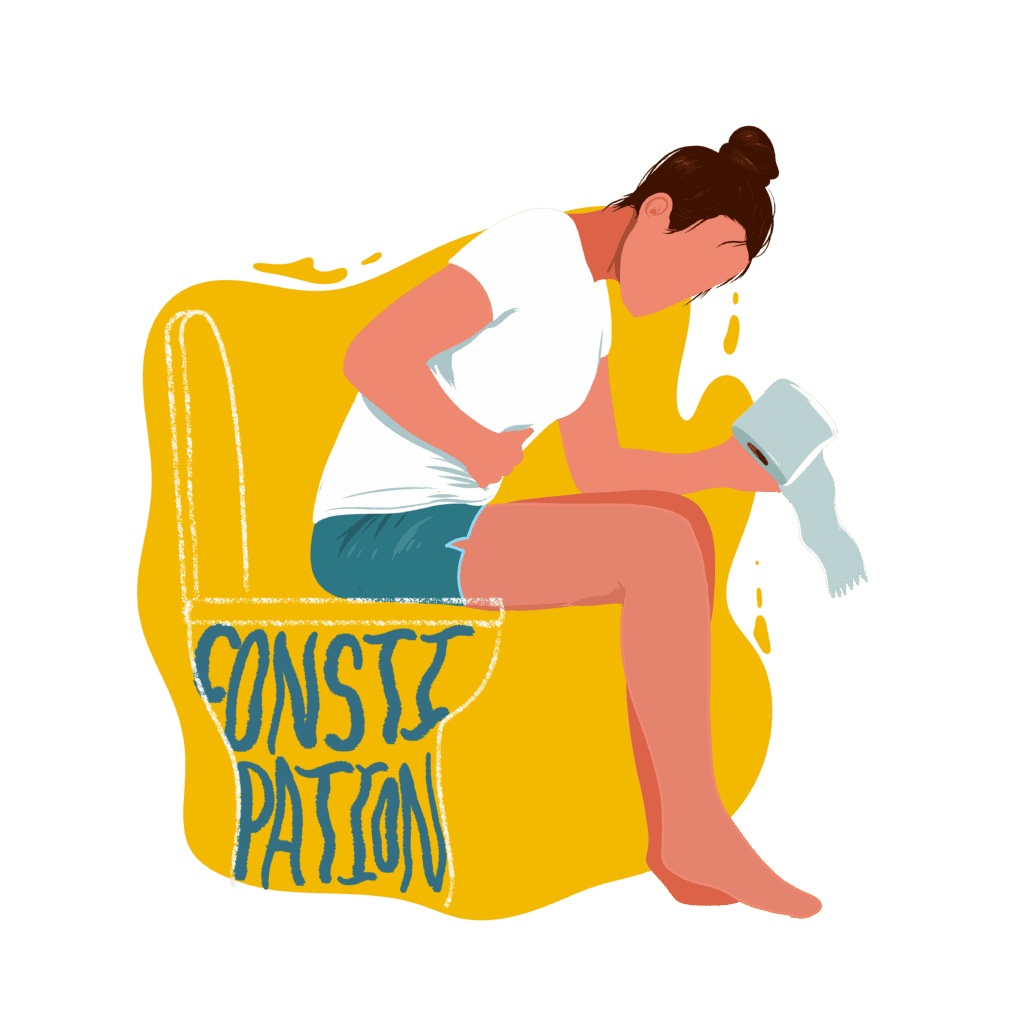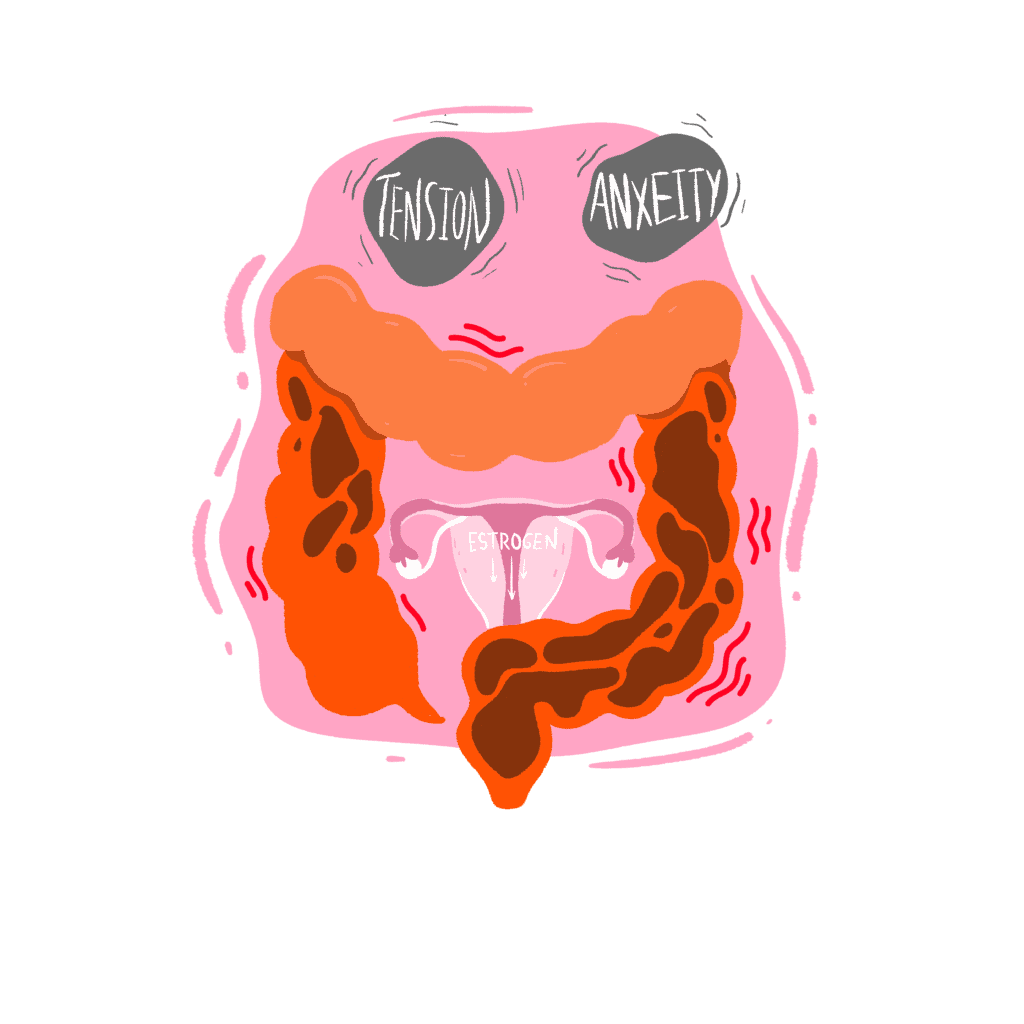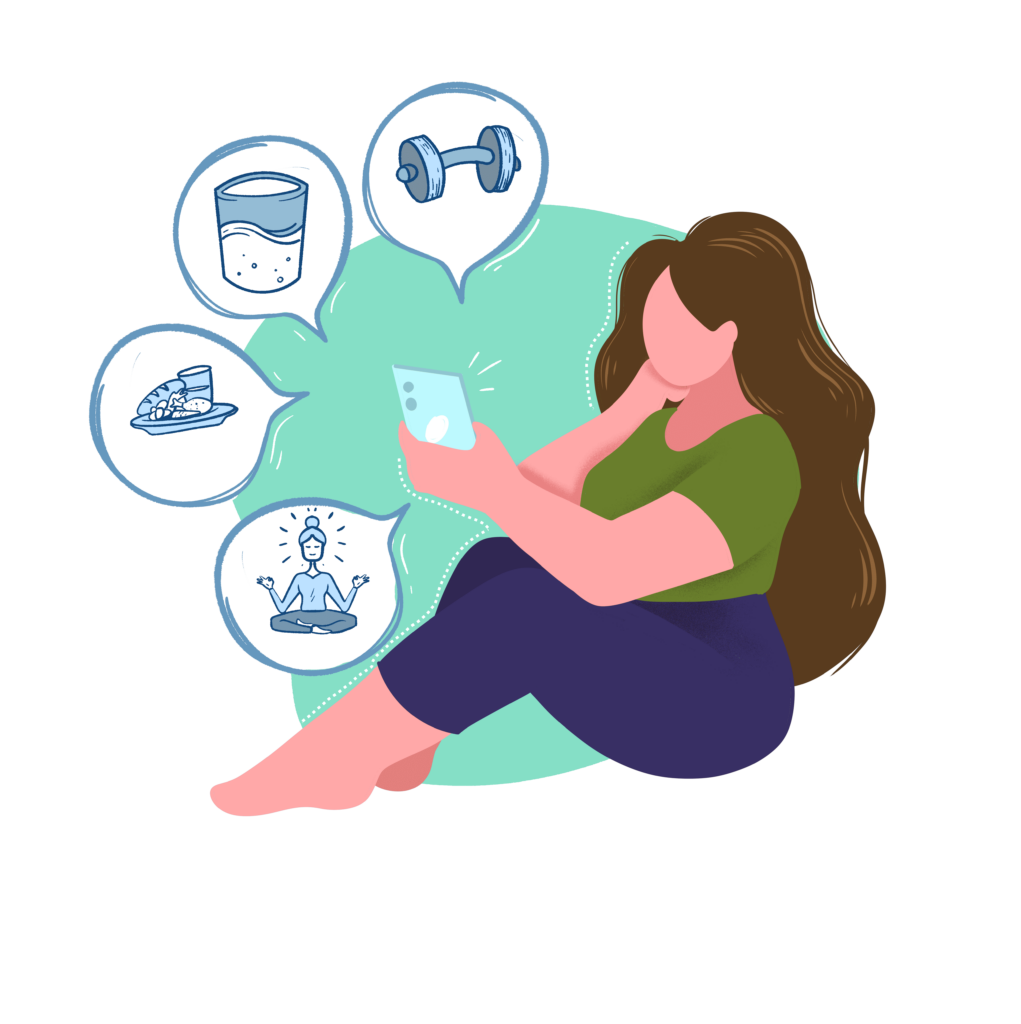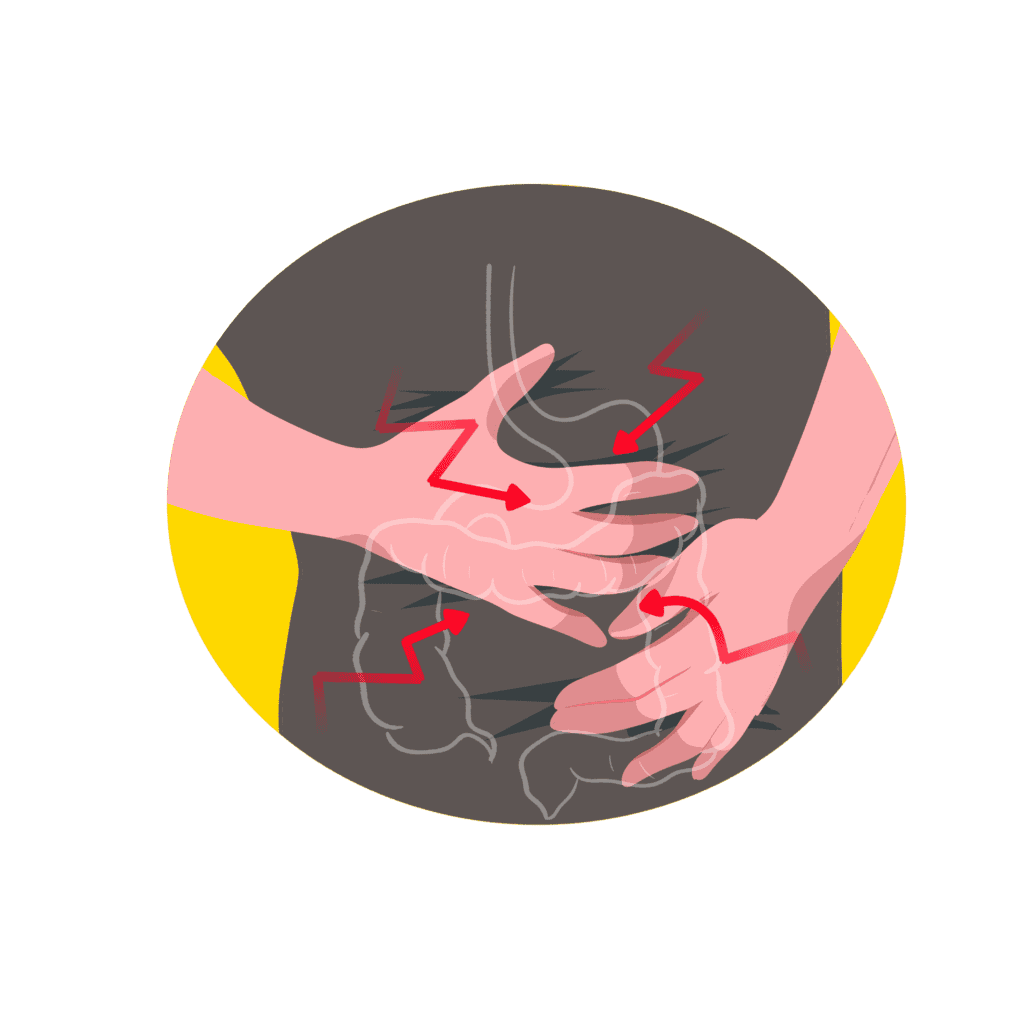It is often known that menopause and constipation are related, and that women going through menopause may experience gastrointestinal problems as a result of decreased estrogen levels. Constipation is only one symptom of this phase, but it can have a big influence on day-to-day living. Research has indicated that women 50 years of age and above have constipation frequently, and that the likelihood of chronic constipation increases with age. Stress, worry, and hormone decrease are some of the factors that make constipation even worse.
Hormone Replacement Therapy (HRT) is a popular treatment for menopausal symptoms, although its effectiveness in treating constipation is still up for debate. Nonetheless, the three most important approaches to treating menopausal constipation continue to be dietary changes, plenty of water, and consistent exercise. It’s important to know when to get medical help, particularly if your constipation doesn’t go away after changing your lifestyle.
Is Constipation a Symptom of Menopause?
Constipation is a potential menopausal symptom. Numerous studies have demonstrated the link between constipation and other gastrointestinal problems associated with menopause. Constipation is just one of the gastrointestinal symptoms women experience during their menopausal transition. The symptoms of constipation include straining, hard stools, decreased frequency of bowel movements, and an incomplete feeling of bowel movement.
In the study conducted by the group of Nini Callan of University of Washington, they’ve discussed that constipation is common in women aged 50 and older and chances of it becoming chronic constipation increases with advancing age. Hormonal decline during menopause, which occurs in the late reproductive periods, could negatively impact bowel function by slowing digestion and decreasing stool movements. Moreover, changes in bowel movements may also be influenced by menopausal symptoms including hot flashes, night sweats, and disturbed sleep patterns that cause stress. For menopausal constipation to be effectively managed, it is imperative to comprehend the mechanisms underlying this condition.

What’s Causing Menopausal Constipation?

Constipation may be caused by multiple factors but if women are entering the menopausal transition, the root cause is the estrogen decline which contributes to a lot of various symptoms such as stress, nausea, and gastrointestinal issues which often leads to constipation, diarrhea, and reduced bowel movements.
According to the study of Callan et al., age and gender, particularly female, are the most conclusive factors that can be directly associated with constipation. Also, they found little correlation with the increase in constipation with the decrease in estrogen which were questionable. But, tension and anxiety were found to be a definitive factor which contributes to the severity of constipation and diarrhea which are known as caused by stress in which women typically experience during this menopausal transition.
However, research results regarding the connection between constipation and menopause varies geographically. Based on the study conducted by the group of Ayca Solt Kirka of University School of Health in Turkey, there were a few complaints on constipation among Turkish menopausal women and did not negatively affect their quality of life. The reason for that is because the Turkish people often eat fibrous foods as part of their daily meal and often have an active lifestyle.
Moving on to how to alleviate this symptom, let’s tackle hormone replacement treatment (HRT) as a remedy for it. There is evidence that HRT can help with menopause-related constipation by correcting hormonal imbalances. Let’s take a closer look at HRT’s possible advantages in treating menopausal symptoms.
Can HRT alleviate Constipation During Menopause?
Hormone Replacement Therapy (HRT) is known to alleviate menopausal symptoms in which it stabilizes the hormonal decline during the menopausal stages. Although menopausal constipation is said to be potentially caused by the decrease in estrogen, there is little evidence backing up the idea that HRT could indeed help stop constipation.
According to the study of Agata Mulak et al of Wroclaw Medical University from Poland, hormonal supplementation during menopause has been associated with the increase in chances of having irritable bowel syndrome (IBS) such as constipation. They’ve suggested that HRT could even prolong or even induce these kinds of symptoms in women not previously affected. A study by Ruigómez et al even suggested that irrespective of treatment period taking into account all the necessary adjustments for comorbidities, HRT indeed increases risk of IBS symptoms.
However, it is important to consult professionals to thoroughly account for all health factors and potential risks an individual may face upon conducting treatment or non-treatment of HRT. When it comes to menopausal constipation treatments, there are a number of methods outside hormone replacement therapy that can be used to properly control this issue which we will discuss in the next section.

Treatments for Menopausal Constipation

For many women, navigating the menopause transitions can be difficult because of symptoms including mood swings and hot flashes. One of these less talked-about issues is menopausal constipation, a condition that can have a major negative influence on quality of life but is sometimes overlooked in the middle of more noticeable symptoms. Through comprehension of treatment methods, women can equip themselves with the ability to confidently and effortlessly handle this facet of their menopausal journey. Below are the following menopausal constipation treatments which ranges from dietary and lifestyle modifications to pharmaceutical procedures:
Consuming High-Fiber Foods
Fiber is an important component of both diets that treat constipation and excrement itself. Additionally, it helps to maintain and enhance a healthy gut microbiome, which is important for maintaining the proper balance of bacteria in the digestive system. A healthy stomach is also associated with good gut motility, which is a sign of healthy muscular coordination that facilitates regular bowel movements. In the study by Jing Yang et al of The First Affiliated Hospital of Soochow University in China, dietary fibers were found to be effective for constipation treatment as well as improving stool frequency.
Proper Hydration
Getting lots of liquids, including water, helps to soften and facilitate the passing of waste. Thus, consuming eight to ten glasses of water a day can aid in avoiding constipation. If you don’t drink enough water, fiber draws water into the colon, which increases the risk of dehydration. To assist the fiber function properly, you should drink water and other liquids, such as clear soups, juice cleanses, herbal teas, and naturally sweetened fruit and vegetable juices. Based on the study by Anti et al of Catholic University from Rome, increasing water intake will remarkably enhance the effectiveness of fiber in treating constipation.
Regular Exercises
Best exercises which are effective for reducing constipation and improving their conditions are aerobic exercises such as jogging, swimming, and even dancing since it helps in keeping the digestive tract healthy. According to the study of Yeon Soo Kim from Seoul National University of Korea , aerobic exercises help overall health by decreasing the time it takes for a substance to move through your colon thus improving gut motility which causes constipation to subside.
Hormone Replacement Therapy
Hormone Replacement Therapy (HRT) replenishes diminishing estrogen levels and restores hormonal balance, making it an essential tool in controlling menopausal symptoms, including constipation. The maintenance of gut health is greatly influenced by estrogen, and constipation can result from this hormone’s disruption of bowel function during the menopause. HRT may help with constipation by enhancing bowel motility and secretion by raising estrogen levels. To make decisions that are specific to their own medical history and preferences, women must discuss the possible dangers and benefits of HRT with their healthcare professional.
A medical professional must be consulted prior to beginning any drug or therapy. When it comes to knowing when to see a doctor, you should do so if your constipation doesn’t go away despite making lifestyle adjustments and using over-the-counter medications. You should also seek medical attention if you have severe symptoms like abdominal pain, rectal bleeding, or unintentional weight loss.
When Should You Seek a Doctor?
It’s important that you get medical help if your menopausal constipation is persistent. While constipation is common on occasion, particularly during hormonal changes like menopause, persistent or severe constipation may be a sign of underlying health problems that need to be addressed by a doctor. Seldom bowel motions, trouble passing stools, stomach pain, bloating, or even rectal bleeding are symptoms of severe constipation. These symptoms may indicate more serious problems such as neurological illnesses, colon cancer, or obstructions of the bowel. To rule out any underlying health issues and to receive proper management and relief catered to your specific needs, it is important that you seek medical assessment.
Come see us at OMC today for a medical evaluation, our team of medical professionals can perform a comprehensive evaluation to identify the root cause of your constipation and provide a customized treatment plan that meets your requirements.

